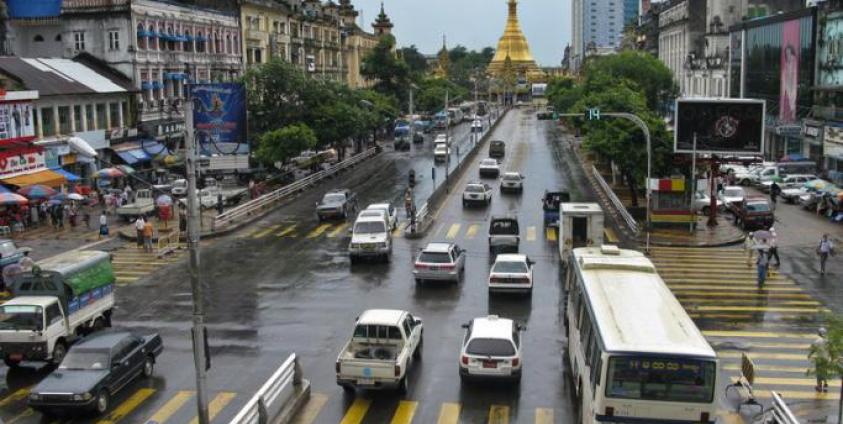Foreign investors face difficult choices about operating in Myanmar after the February military coup, with few taking the route of leaving as has Norwegian telecoms group Telenor.
Activists have heaped pressure on multinationals to pull out of Myanmar as the death toll from the military crackdown nears 900 and some 200,000 have been forced to flee their homes, according to the UN, which has accused the military junta of committing crimes against humanity.
Investors piled into the country after the military relaxed its iron grip in 2011, paving the way for democratic reforms and economic liberalisation in the country of more than 50 million people.
They poured money into telecommunications, infrastructure, manufacturing and construction projects.
Now they face either pulling up sticks like Telenor, suspending operations, or continuing with business as usual.
- Leaving, a rare choice -
Telenor announced Thursday it was selling its Myanmar subsidiary, which is one of the leading operators in the country with 18 million mobile phone customers.
It is one of the rare companies to decide to leave the country.
At the end of March the French renewable energy firm Voltalia, which had been working in Myanmar since 2018 and had a staff of 43, said it was winding up operations due to the "political and humanitarian crisis".
- Suspending operations -
Shortly after the military takeover, Japan's Suzuki announced it was suspending production at its two Myanmar factories, which produced 13,300 vehicles in 2019, mostly for the local market.
The firm, which has operated in Myanmar since 1998, reopened the sites within days and is now considering building another facility.
Myanmar factories became suppliers of many popular clothing brands over the past decade, but groups like Italy's Benetton stopped placing new orders.
Benetton chief executive Massimo Renon said the suspension was intended "to send a strong and concrete signal".
In the energy sector, France's TotalEnergies, which has long been present in the country, has scaled back its operations. It halted prospecting and the development of one site. It also halted dividend payments to a shareholder linked to the Myanmar military.
French energy giant EDF announced the suspension of its activities in Myanmar where it is involved in a $1.5-billion project to build a hydroelectric dam, Shweli-3, alongside consortium partners, Marubeni of Japan and Ayeyar Hinthar of Myanmar.
"The respect of fundamental human rights... are a pre-condition for every project in which we take part," EDF said in a letter to the NGO Justice for Myanmar.
- Staying -
French hotel chain Accor, which operates nine hotels in Myanmar and is planning half a dozen more, has no plans to leave or cut ties with its local partner, Max Myanmar Group, which is not under sanctions.
Accor, which employs a local workforce of around 1,000, sees "tourism as the last link between the people of Myanmar and the rest of the world," a spokeswoman said.
Japanese brewer Kirin has said it would cut business ties with the military with which it operates two local breweries, accusing the junta of acting "in contradiction" to its principles on human rights.
But the firm said it currently has no intention to pull out completely from a market that accounts for around two percent of its overall turnover.
Danish brewer Carlsberg has said it would reduce production capacity as beer consumption in Myanmar is on the decline, but it has no plans to quit. It employs 500 people locally.
British tobacco giant BAT said that more 100,000 local jobs depended on its investment, operations and partnerships in Myanmar and it would stay, while prioritising the security and well-being of its workers.
Photo: Cars drive on the Sule Pagoda road in Yangon, Myanmar, 17 September 2009. Photo: EPA








